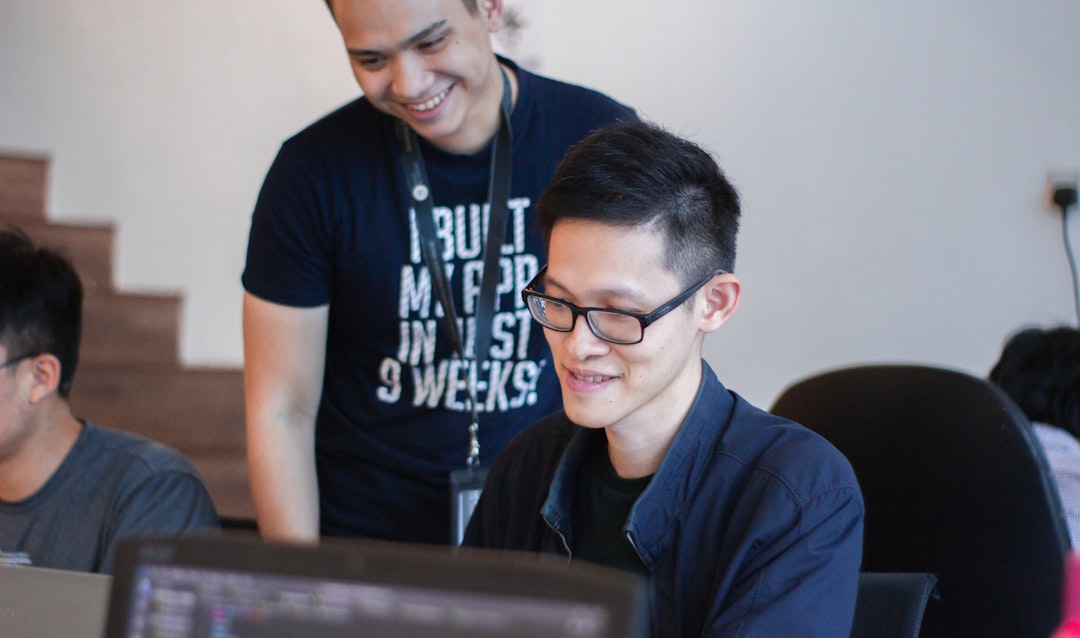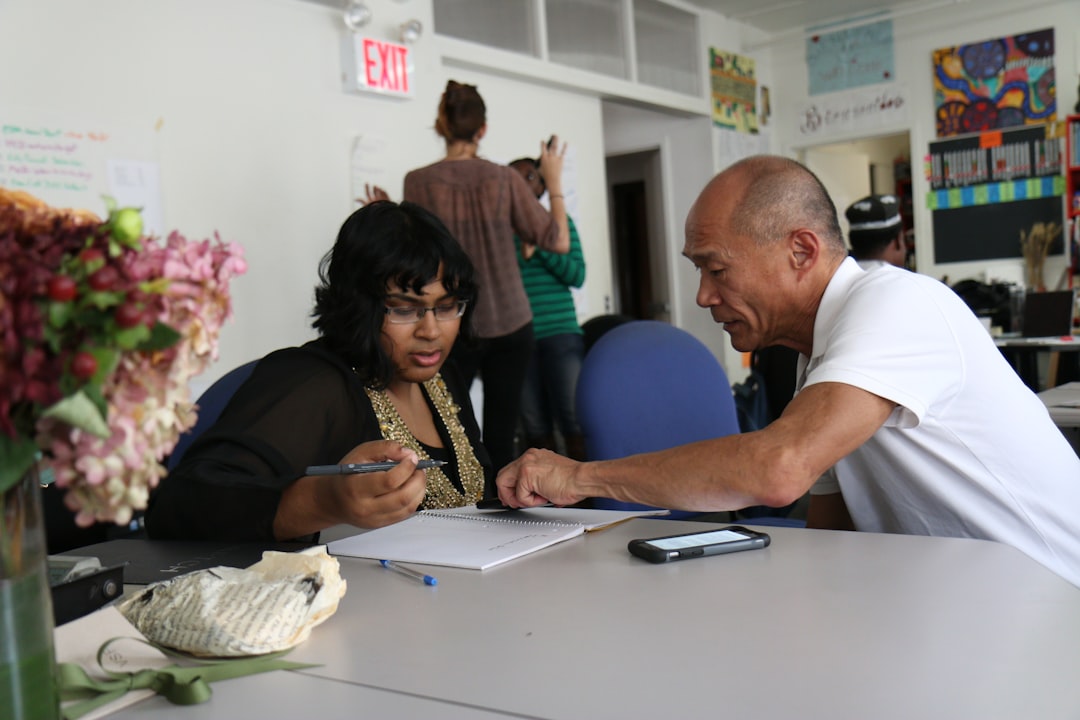1. Introduction
A mentor can be an invaluable asset to your career. A good mentor will help you learn from your mistakes, give you honest feedback, introduce you to new opportunities, and help you develop both personally and professionally.
But how do you find a mentor? And once you’ve found one, how do you make the most of the relationship? This article will give you some tips on how to find and work with a professional mentor.

https://unsplash.com/@next_academy
2. Why professional mentoring is important
Professional mentoring is an invaluable relationship that can help you grow in your career, gain confidence, and navigate the professional landscape. It can also help you make better decisions, avoid costly mistakes, and develop better relationships with colleagues and management.
Mentoring can provide you with a sounding board for your ideas, help you develop essential skills, expand your professional network, and open the doors to new opportunities. Mentoring can also help you gain insights from those who have gone through similar experiences, provide an accountability partner or a second opinion, and ultimately expand your perspective.
Having a mentor can help increase your confidence and self-esteem, and help you be more successful in your career. With a professional mentor, you can learn how to make the most of every opportunity and reach your career goals.

https://unsplash.com/@cytonn_photography
3. How to assess if a mentor is right for you
When assessing whether a mentor is right for you, consider their background, qualifications, and experience. It is important to review their credentials and research their background. Ensure that their qualifications and experience are relevant and in line with the type of mentoring you’re looking for.
You should also consider the mentor’s communication style. Do they communicate clearly and effectively? Does their style and attitude reflect your own? Do they listen to your concerns and views and provide constructive feedback?
It is also essential to cover expectations upfront. Your mentor’s expectations, including their availability and times for meetings, and their expectations for you, such as how often and for how long you should meet, should all be clearly discussed beforehand.
Finally, when choosing a mentor, you should consider their personality and whether you’re comfortable with them. Is their personality compatible with yours? Are you going to be able to be open and honest with them? Your relationship with your mentor should be mutually beneficial, so make sure your expectations and personalities align.

https://unsplash.com/@monicomelty
4. How to get the most out of your professional mentor relationship
Now that you have identified and selected a mentor, the next step is to make sure you get the most out of the mentorship.
Start the journey by setting a goal for yourself. Make sure you can articulate it to your mentor. This will help narrow down tasks and focus on what you want to achieve during the entire process.
In addition to a goal, create a timeline that includes checkpoints and tasks you need to complete. Determine a timeline that allows you to accomplish your goal with realistic expectations.
You should also have an open discussion with your mentor. You should feel comfortable enough to be honest with them. After all, they are here to help you. You should also be flexible and have a structured yet open conversation.
In the end, be aware of the communication boundaries and respect them. Keep your communication to scheduled meetings or agreed upon times. You should also thank your mentor for their assistance and And always show your appreciation.
Following these steps can help create an environment for success for your professional mentorship.

5. Making the most of your professional mentor relationship
Once you have identified and selected a professional mentor and set a goal for yourself, it’s time to make the most of the professional mentorship.
1. Create a Bond: It’s important to establish a bond with your mentor. This trust and strong connection will greatly benefit both parties in the long run. To do this, find common interests and connect with your mentor on a personal level. It’s essential to build a task-orientated relationship, but this should be balanced with other aspects such as shared hobbies and interests.
2. Ask for Advice: Asking your mentor for advice or guidance when needed is crucial. This is the main reason you sought out a mentor in the first place. Don’t forget to make use of the expertise they can offer you.
3. Set Clear Expectations: It’s essential to make sure that both parties are on the same page when entering into a professional mentorship relationship. Have a discussion about expectations, deliverables and results so that neither of you is left feeling frustrated or overworked.
4. Communicate Regularly: Being open and honest with your mentor is one of the most important aspects of a professional mentorship. Make sure to check in with your mentor often to review progress and share successes and challenges.
5. Make Time to Connect: Just because you have a professional mentor relationship doesn’t mean that you need to spend hours discussing your progress.

https://unsplash.com/@jeshoots
6. Common challenges in professional mentor relationships and how to overcome them
Navigating a professional mentor relationship can be challenging. There are several common challenges that can arise, and it is important to be aware of them so that you can prepare and be ready to overcome them. Here are some of the most common challenges you may face when working with a professional mentor:
1. Time – Finding the time to both dedicate to and continue the professional mentor relationship can be difficult. Time can easily slip away, which can cause tension and disappointment.
2. Availability – Your mentor may have other commitments that limit the amount of time they have available. This can cause delays in the mentorship process, leading to frustrations.
3. Communication – It is essential for both parties to keep the lines of communication open throughout the duration of the professional mentor relationship. When communication skills are limited, it can be difficult to make progress and bond with one another.
4. Goals – If expectations are not clearly defined, it is easy to fall into the trap of meeting with no clear goal or focus. Without clearly defined objectives, progress may be slow.
5. Style – Every professional mentor has a different style and approach to mentoring, and it’s not always easy to adapt to the different styles. It’s important to find a mentor that aligns with your own style and approach.
It is important to be prepared for any of these challenges and armed with the best strategies on how to overcome them. Being proactive and having

https://unsplash.com/@mimithian
7. Wrapping up
Your professional mentor relationship is coming to an end, and now it is time to wrap it up. As you finish your journey together, it is important to recognize the hard work and effort from both parties to make this successful.
Take the time to reflect on the journey and the progress made. Celebrate your accomplishments, and thank them for being part of it. Schedule a final meeting to review your progress and any lingering challenges. This is also a great opportunity to discuss and share your plans for the future.
If the course and progress have been satisfactory, it is a good idea to discuss the possibility of continuing the relationship for the future. But, if the time has come for you to go your separate ways, make sure to stay in contact with each other and refer your mentor when you come across potential clients or career opportunities.
By following these tips, you can help ensure that your mentorship experiences are as successful and amicable as possible. Remember that when working with a mentor, providing feedback and nurture is just as important as refocusing and redirecting while pursuing common goals. Doing so will create a meaningful mentorship that is both satisfying and beneficial.







 Arizona’s entrepreneurial ecosystem continues to grow and prosper. New incubators and support programs continue to grow and evolve to support what the Kauffman Foundation has recently ranked as the fourth most active system for entrepreneurial activity in the nation.
Arizona’s entrepreneurial ecosystem continues to grow and prosper. New incubators and support programs continue to grow and evolve to support what the Kauffman Foundation has recently ranked as the fourth most active system for entrepreneurial activity in the nation.

 Our recent annual Mentoring Matters Reader Survey revealed dozens of best practice topics. This blog is the first in our series of mentoring best practice posts soon to follow. Based on our survey results, here are the top ten:
Our recent annual Mentoring Matters Reader Survey revealed dozens of best practice topics. This blog is the first in our series of mentoring best practice posts soon to follow. Based on our survey results, here are the top ten:
 This inspiring young man,
This inspiring young man, 